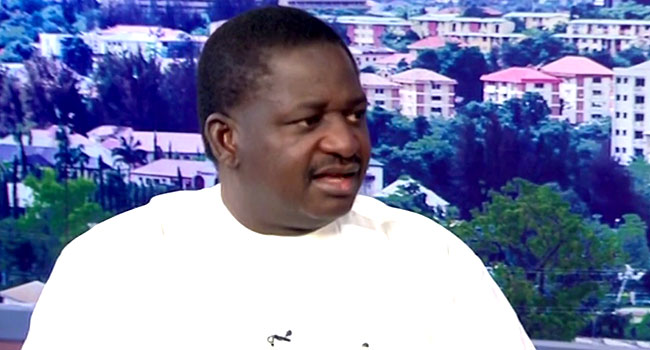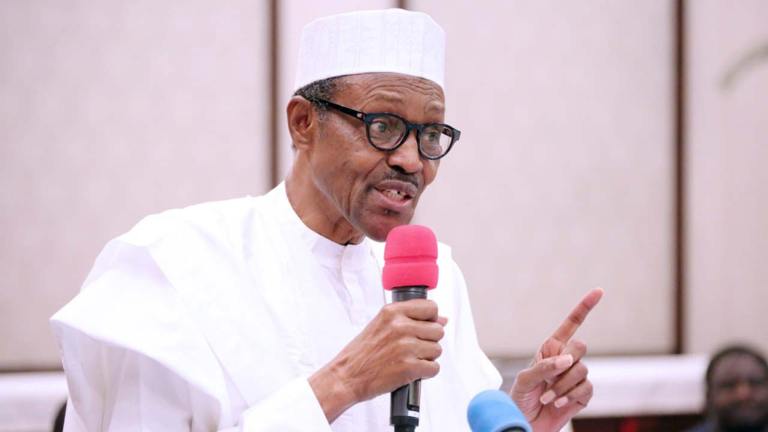
The direct consequence of the suspension of the subsidy on petrol is that Nigeria may have to continue to borrow.
due to the suspension of the removal of fuel subsidy, the Presidency said on Wednesday.
This how the President’s Special Adviser on Media and Publicity, Femi Adesina, framed it in an interview on Channels Television’s breakfast programme, Sunrise Daily.
“Head or tail, Nigeria will have to pay a price,” he said.
“It’s either we pay the price for the removal in consonance and in conjunction with the understanding of the people, but if that will not come, the other cost is that borrowings may continue, and things may be difficult fiscally with both the states and the Federal Government.
“You know how much could have been saved if the subsidy was removed and how it could have been diverted to other areas and spheres of national life. But if you do not go that way now – and I agree that it may not be auspicious to go that way, then we have to pay a price.”
Last year, the Senate approved some loan requests by the government. This included the approval of $6.1 billion, as well as the $16,230,077,718 and €1,020,000,000 loan requests in July and November respectively.
As per Adeshina, oil prices have been fluctuating globally for years as a result of one reason or the other, particularly due to COVID since 2019.
“Head or tail, Nigeria will have to pay a price,” he said.
“It’s either we pay the price for the removal in consonance and in conjunction with the understanding of the people, but if that will not come, the other cost is that borrowings may continue, and things may be difficult fiscally with both the states and the Federal Government.
“You know how much could have been saved if the subsidy was removed and how it could have been diverted to other areas and spheres of national life. But if you do not go that way now – and I agree that it may not be auspicious to go that way, then we have to pay a price.”
Last year, the Senate approved some loan requests by the government. This included the approval of $6.1 billion, as well as the $16,230,077,718 and €1,020,000,000 loan requests in July and November respectively.
According to Adesina, oil prices have been fluctuating globally for years as a result of one reason or the other, particularly due to COVID since 2019.
He stated that the price witnessed a decline as low as $30 per barrel, but later rose above $80 per barrel.

An initial announcement to remove fuel subsidy in June was rejected by individuals and groups accusing the government of inflicting more suffering on Nigerians.
On Monday, the Minister of Finance, Budget, and National Planning, Mrs Zainab Ahmed, said removing fuel subsidy at this time would be problematic, thus the decision has been suspended.
But many, including the President of the Nigerian Bar Association (NBA), Olumide Akpata, believe the suspension of the fuel subsidy removal has to do with the coming elections in 2023.
“It is a valid thing [to do],” Adesina said of the government’s suspension of the removal, adding, “but is this done because of elections next year? No.”
“It is done because as the minister (of finance) stated, the timing is not auspicious, inflation is still high. In the past eight months, we saw inflation reducing but the last month, it went up again; further consultations need to happen with all the stakeholders.”
Governments across the world, according to Adesina in the interview, “is always mindful of its actions and decisions in a pre-election year, citing the developments in the United States and their impacts on the country’s poll.”
He however would agree the present administration’s proposal to extend the removal of fuel subsidy by 18 months was intended to booby-trap the next president.
“That was not the intention, the intention was also stated – the timing is not right, it will exacerbate the hardship of the people and the President genuinely cares,” Adesina said.
“Politics is a part of our lives, but elections will just be one event in the life of the country. When elections come, they go, the country continues. This fuel subsidy, whether it stays or goes, is going to have a serious impact on the economy.”














